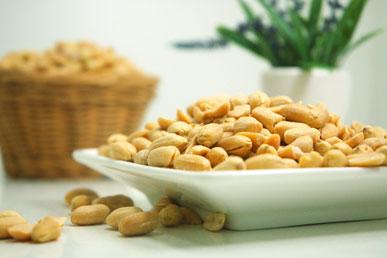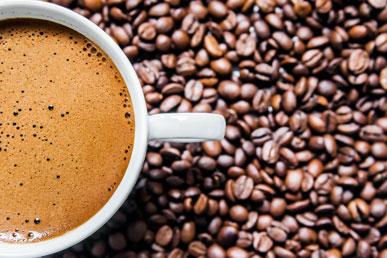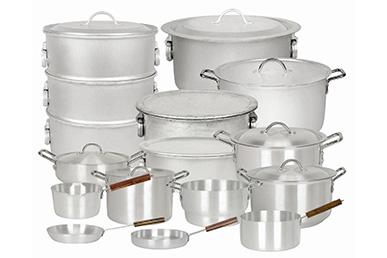Men's health seems strong, but in fact it requires careful care and attention. Statistics show that men are more vulnerable to diseases and have a shorter life expectancy compared to women. Unfortunately, many men do not pay due attention to their health, avoiding doctors and ignoring “minor” problems. This may be due to both a reluctance to spend time on health and a fear of medical institutions. In such circumstances, it is important that women know which products support men's health so that they can tenderly and sensitively care for the well-being of their loved ones.
A balanced diet rich in certain nutrients can have a significant impact on a man's physical condition and well-being. In this article we will look at 9 basic products that should be present in the daily menu of every man striving for a healthy lifestyle. Let's talk about how these foods can improve your quality of life and how best to include them in your diet.
1. Berries
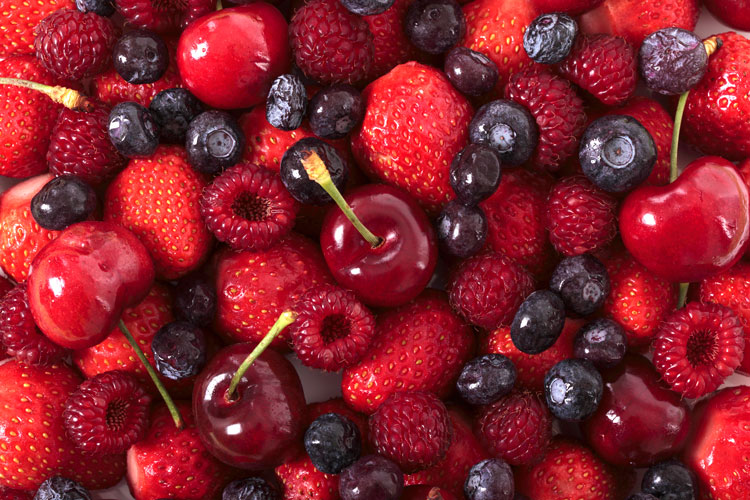
Berries are not only tasty, but also extremely beneficial for health, especially for men. These little fruits are a treasure trove of antioxidants, vitamins and minerals that can play a key role in maintaining men's health.
Berries such as blueberries, raspberries, strawberries and blackberries are rich in antioxidants such as anthocyanins and flavonoids. Antioxidants protect cells from free radical damage, which can lead to chronic disease and accelerated aging.
Berries contain plant compounds that promote heart health. Regular consumption of berries can help lower levels of “bad” LDL cholesterol, increase “good” HDL cholesterol and improve overall vascular health.
The low glycemic index of berries makes them an ideal choice for maintaining normal blood sugar levels. This is especially important for men as they are more likely to develop type 2 diabetes.
Research suggests that the antioxidants in berries may improve cognitive function and slow age-related memory decline. Berries can be an important part of your diet to support brain health.
Berries, especially blueberries, contain compounds that may help support prostate health. Regular consumption of berries can reduce the risk of developing prostatitis and other prostate problems.
Vitamin C, which is found in large quantities in berries, is an important element for maintaining the immune system. It helps fight infections and speeds up wound healing.
Adding berries to your diet doesn't require much effort. They can be eaten fresh, added to cereals, yoghurts, smoothies, or used as an ingredient in desserts. The key is to consume them regularly to reap the maximum health benefits.
2. Tomatoes
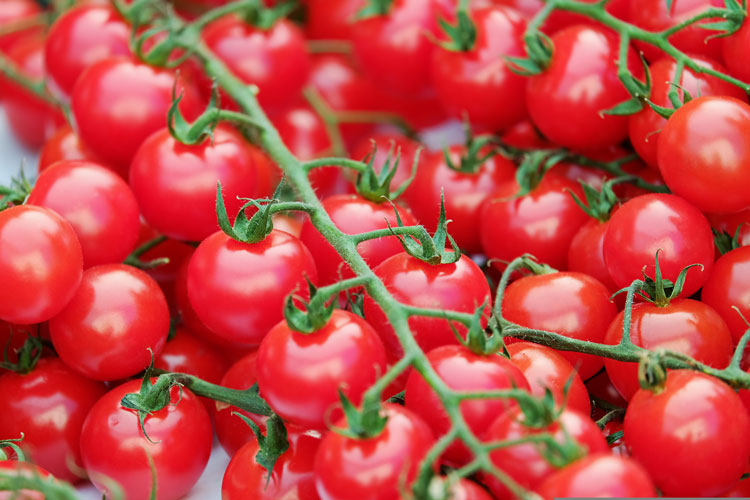
Tomatoes contain antioxidants, vitamins and minerals that play a key role in maintaining health and preventing disease. One of the most valuable components of tomatoes is lycopene, a powerful antioxidant that gives them their red color. Research shows that lycopene may reduce the risk of prostatitis and prostate cancer, two common men's health problems. Lycopene also helps improve heart and vascular health, which is especially important for men over 40 years of age.
Tomatoes are rich in vitamin C, which strengthens the immune system, and potassium, which is necessary for normal heart and muscle function. They also contain vitamin K, which plays an important role in blood clotting and bone health.
In addition to vitamins and minerals, tomatoes contain dietary fiber, which helps maintain a healthy digestive system and prevent constipation, a problem faced by many men.
Tomatoes are versatile and can be used in a variety of dishes. From fresh salads to tomato juice, from sauces to casseroles, they can be a delicious and healthy addition to your table.
3. Carrot

Carrots have long been considered one of the healthiest vegetables in our diet. This bright orange root vegetable is rich in nutrients that can have positive effects on various aspects of men's health.
One of the key components of carrots is beta-carotene, which is converted into vitamin A in the body. This vitamin is essential for maintaining healthy eyes, skin and immune system. But his role is not limited to this. Vitamin A is also important for the reproductive system, helping to maintain healthy sperm and improve fertility.
Including carrots in your daily diet can be a simple and delicious way to improve men's health. Raw or cooked, in salads or smoothies, carrots will not only boost your health, but also add a pop of color to your plate.
4. Leafy vegetables

Leafy vegetables such as spinach, kale and arugula are not only a delicious addition to your daily diet, but also a valuable source of nutrients needed to support men's health.
Leafy vegetables contain high amounts of antioxidants, such as vitamin C and E, as well as beta-carotene, which protect cells from free radical damage and promote longevity. They are an excellent source of minerals, including iron, potassium and magnesium, which play a key role in energy production and oxygen metabolism.
Due to their high folic acid content, leafy vegetables help reduce homocysteine levels in the blood and dilate blood vessels, which has a beneficial effect on the cardiovascular system.
Leafy vegetables contain nitrates, which are converted into nitric oxide, which improves blood circulation and supports efficient muscle function.
The simplest and most obvious way is to add spinach, cabbage or arugula to fresh salads. For those who don't like the taste of greens, you can blend the vegetables with ripe fruits in a smoothie to mask the taste but retain all the nutrients.
Leafy vegetables can also be quickly sautéed in olive oil and garlic and added as a side dish to a main dish. Spinach or kale make a great addition to soups and stews, adding nutrition and rich flavor to dishes.
5. Cottage cheese and milk

Cottage cheese and milk have long established themselves as important elements of a healthy diet. But their role in maintaining men's health is especially significant. These foods are rich in protein, calcium and vitamins, which are essential for maintaining muscle mass, strong bones and overall well-being.
Cottage cheese is an excellent source of slowly digestible protein – casein. This makes it an ideal product for muscle recovery after exercise and during sleep. Milk also contains protein, which promotes the growth and repair of muscle fibers.
Calcium found in milk and curd plays a key role in maintaining bone density. This is especially important for men over 30 years of age, when gradual loss of bone mass begins.
Milk and cottage cheese contain B vitamins necessary for metabolism and energy production. Vitamin D in milk helps with calcium absorption and supports the immune system.
6. Pumpkin seeds
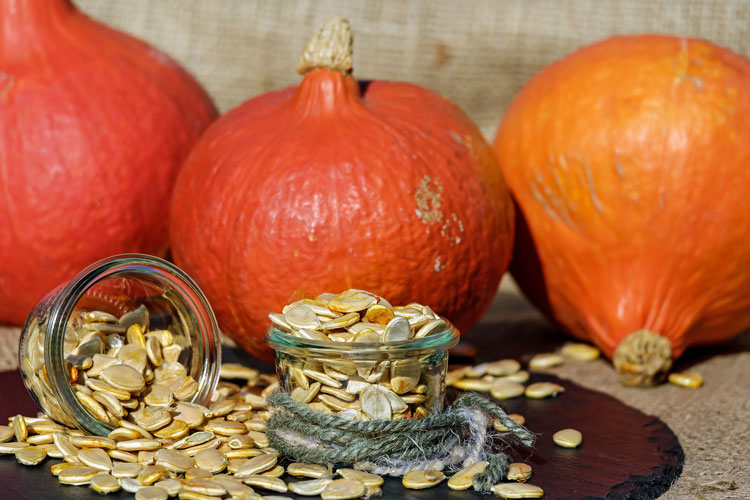
Pumpkin seeds are not just a tasty snack, but also a valuable source of nutrients, especially important for men's health. These little seeds contain a variety of vitamins, minerals and other substances that can have a positive effect on various aspects of men's health.
Zinc is a mineral that plays a key role in maintaining prostate health and male reproductive function. Pumpkin seeds are one of the best plant sources of zinc. Regular consumption of these seeds can help maintain normal testosterone levels and improve sperm quality.
Cardiovascular diseases remain one of the leading causes of death among men. Pumpkin seeds contain omega-3 and omega-6 fatty acids, which can lower bad cholesterol and increase good cholesterol, thereby reducing the risk of heart disease.
The magnesium in pumpkin seeds contributes to normal muscle and nerve function, as well as maintaining bone health and regulating blood sugar levels. This is especially important for men who lead an active lifestyle or suffer from diabetes.
Pumpkin seeds are rich in antioxidants such as vitamin E and carotenoids. Antioxidants protect cells from free radical damage, which can prevent the development of chronic diseases and slow down the aging process.
Pumpkin seeds are easy to include in your daily diet. They can be added to salads, yoghurts, porridges or eaten as a stand-alone snack. They are not only useful, but also easy to carry and store.
7. Seafood and fish
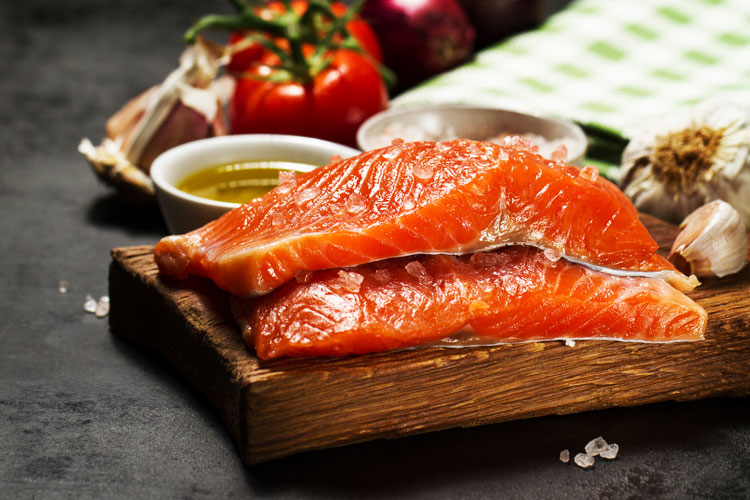
Seafood and fish have long been considered a valuable source of nutrients, especially for men. Rich in omega-3 fatty acids, high quality proteins, vitamins and minerals, they play an important role in maintaining heart health, improving cognitive function and maintaining muscle mass.
Omega-3 fatty acids found in fish such as salmon, mackerel and sardines are known for their anti-inflammatory properties. They help lower triglyceride levels in the blood, reduce the risk of blood clots, and may lower blood pressure. This is especially important for men as they have a higher risk of developing cardiovascular disease.
Fish is an excellent source of protein, which is necessary for the restoration and growth of muscle tissue. Men who participate in sports or physical activity especially need sufficient protein to maintain muscle strength and endurance.
Zinc, found in oysters and other seafood, plays a key role in testosterone production and maintaining male reproductive health. Selenium, found in tuna and shrimp, promotes thyroid and immune system health.
Don't forget about the psychological benefits of eating seafood. Omega-3 fatty acids are associated with improved mood and may reduce the risk of depression.
Sea fish such as cod, haddock and pollock are recommended to be consumed 2-3 times a week. Small river fish can be eaten 1-2 times a week, but large predatory fish, such as tuna or marlin, should be limited to once a week. Lightly salted fish is recommended to be consumed sparingly, no more than once every two weeks.
8. Meat

Meat has long been considered the main source of protein and an important nutritional element for men. Protein is the building block of muscles, and meat is one of the best sources of it. For men who exercise or lead an active lifestyle, adequate protein intake is especially important for muscle tissue repair and growth.
Meat contains iron, which is necessary for the production of hemoglobin, a protein that carries oxygen throughout the body. Zinc, also found in meat, plays a key role in maintaining the immune system and reproductive health.
Meat contains both saturated and unsaturated fats. Unsaturated fats, which are good for the heart and blood vessels, can be found in chicken or turkey. While saturated fats should be consumed in moderation and are found in higher quantities in red meats such as beef and pork. By choosing low-fat meats, such as skinless chicken or turkey breast, you can reap the benefits without harming your health.
Meat is an excellent source of B vitamins, including B12, which is essential for nervous system function and DNA production. These vitamins help the body obtain energy from food, which makes meat an important element in the diet of men.
Meat can be an important part of a balanced diet for men, but it's important to remember to eat variety. Plant proteins, fruits, vegetables and whole grains should also be present in the diet. Moderate consumption of meat, especially low-fat meat, can help support men's health and overall well-being.
9. Red grape wine

Recently, more and more studies have confirmed that moderate consumption of red wine can have a positive effect on men's health.
One of the most famous properties of red wine is its beneficial effect on the cardiovascular system. Antioxidants found in grape skins, such as resveratrol, help lower bad cholesterol levels and prevent blood clots.
Research suggests that resveratrol may also play a role in preventing the development of certain types of cancer, including prostate cancer. This is due to its ability to inhibit the growth of cancer cells and stimulate apoptosis – programmed cell death.
Recent research indicates that moderate consumption of red wine may improve male fertility. Polyphenols in wine help improve sperm quality, increasing the chances of successful conception.
Although red grape wine can be beneficial for men's health, it is important to remember to use moderation. The recommended dose should not exceed 1-2 glasses per day. Also, do not forget about possible contraindications and the need to consult a doctor before changing your diet or lifestyle.
Including these foods in your diet will help maintain men's health at a high level. Remember that moderation and variety are the key to healthy eating.



